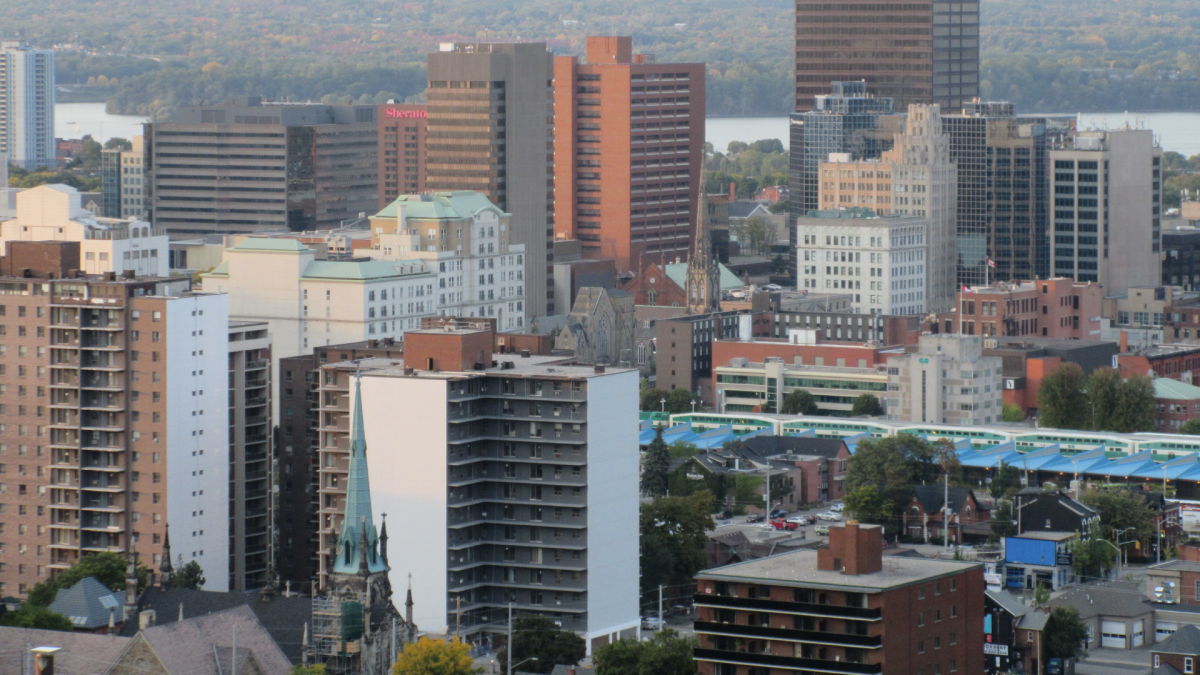Despite solid GDP growth in 2021 with the easing of public health measures tied to COVID-19, a not-for-profit think tank says Hamilton’s economic activity continued to grow in 2022, but is beginning to slow.

The Conference Board of Canada’s (CoC) latest edition of their Major City Insights forecast is attributing a forthcoming decline with inflationary pressures, rising interest rates, supply chain issues and many industries facing labour shortages.
CoC economist Viktor Cicman told Global News he expects Hamilton’s GDP to grow to 3.0 per cent this year, but slow to around 2.2 per cent over each of the next two years.
“Going into the tail end of this year … we’re starting to see growth slow down,” Cicman said.
“Interest rates are going up, helping to cool the economy down so that inflation can get back to a normal 2.0 per cent, and that’s where we see a slowdown happening nationwide. Most municipalities will see it.”
The city’s employment numbers for 2021 recouped 23,000 of the more than 26,000 jobs lost in 2020.
As of July 2022, the city’s unemployment rate is still hovering around a historic low, at 4.3 per cent.

Get daily National news
Despite the gains in employment, labour shortages will continue to be an issue for restaurants, hospitality, and recreation, the CoC says.
The “strength” industries going into 2023 are expected to be in the city’s manufacturing, health care and professional services.
Cicman suspects some of the best growth rates will be within the health sector which has become a key cluster of development in Ontario following the pandemic.
“We’re still in a pandemic, we have an aging population … so there’s still going to be a lot of jobs that occur in health care especially since there’s (staff) shortages,” he said.
Growth with hotels, tourism and eateries is expected going into 2023 but the CoC forecast is not insinuating it will be easy for the sectors which appear to be suffering the brunt of labour issues.
“A lot of places that do these contact services … they’re having a hard time finding people” Cicman said. “They’re having to cut back on the amount of hours that are available. At the same time costs are going up for them and profit margins are very tight.”
The CoC’s outlook for the country suggests Saskatoon will outpace all other major cities in GDP growth making up for an eight-year GDP slump that saw the number 4.7 per cent lower in 2020 than it had been in 2014.
The cooling housing market will impact economic growth in Vancouver, Victoria and Québec City which will see lower but still healthy economic growth year over year with GDP rates of 2.5 to 2.8 per cent.
Cicman says housing is also expected to be key in Ontario’s future economic health, particularly with Statistics Canada revealing international migration accounted for 94.5 per cent of an estimated 285,000 new residents that arrived between April and July 2022.
“This does seem to be on the agenda for the Ford government and for a lot of mayors,’ Ciman explained.
“More housing will need to be built, especially as we do expect immigration to increase … with a lot of people coming to the GTA area and Hamilton.”














Comments
Want to discuss? Please read our Commenting Policy first.